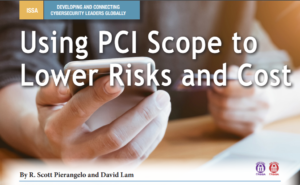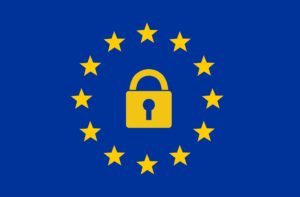Cybersecurity Compliance
Companies are obligated to protect their sensitive or valuable data assets. These obligations manifest in the form of industry standards and legal regulations. The road to cybersecurity compliance can be overwhelming, but it is better to regard the rules as friends rather than enemies. While compliance does not guarantee security, noncompliance guarantees an incident.
“Cybersecurity compliance carries numerous benefits beyond keeping data safe. Return on investment is high, consumer confidence grows, and the organizational benefits for day-to-day work will improve everyone’s sanity.”
A compliant company will have smaller losses and higher revenues than a non-complaint one. Let’s start by focusing on the losses: Hackers stole $172 billion from people in 2017, and 2018 will likely be another record year for cyber criminals. Companies that invest in hardening their cyber defenses and adopting best practices will be better placed to get through the year unscathed. It is important to remember these adversaries are usually opportunistic in nature, selecting targets based on weakness rather than their value. Becoming compliant is both a strategy for thwarting attacks and preventing oneself from becoming a target in the first place.
Adding injury to injury
Non-compliant companies also risk getting hit with massive fines following a data breach. The UK will start fining inadequately secure companies up to $24 million if they fail to improve their defenses. Violators of GDPR, the European Union’s latest data regulation, could face fines up to nearly $25 million or 4% of global revenue, whichever is greater. In America, the FTC has had several high-profile court cases with companies who failed to protect their consumer’s data. A data breach is already damaging enough to a company’s income and reputation. But a data breach combined with a legal backlash could be fatal to a brand.
About branding, compliant companies will engender consumer confidence. Consumers are rapidly learning the dangers of internet technology, and today virtually every company is a technology vendor. Customers will naturally gravitate towards companies with cybersecurity bona fides, especially for services that handle confidential data. Healthcare providers, learning institutions, legal firms, and even religious organizations should consider pursuing compliance if they want to generate trust in their brand.
Compliance brings order to business by asking questions like “Who’s responsible?” and “Who’s allowed access?” During time-sensitive or high-pressure situations can exacerbate an already stressful circumstance. Pursuing compliance forces companies to define the roles within their business and prioritize the important items. This clears the fog and makes for smoother operation.
The best approach
When seeking compliance it is best to bring in a third party, such as a cybersecurity consultant. Firms that undertake this project completely in-house risk missing important details. Imagining asking a fish, “What’s the most obvious aspect of your environment?” Probably the last thing he would sahttp://info@silentstormsecurityy is “Water.” He is so surrounded by it that he cannot notice it. Similarly, even impeccably bright staff may not know best practices. It is also unlikely that even technically inclined members of the staff have the full skillset required to perform an audit. Bringing in an expert who has already helped other companies achieve compliance is a superior strategy than a do-it-yourself operation.
Author: Louis Papa
Silent Storm Security Contributor | Security Engineer




